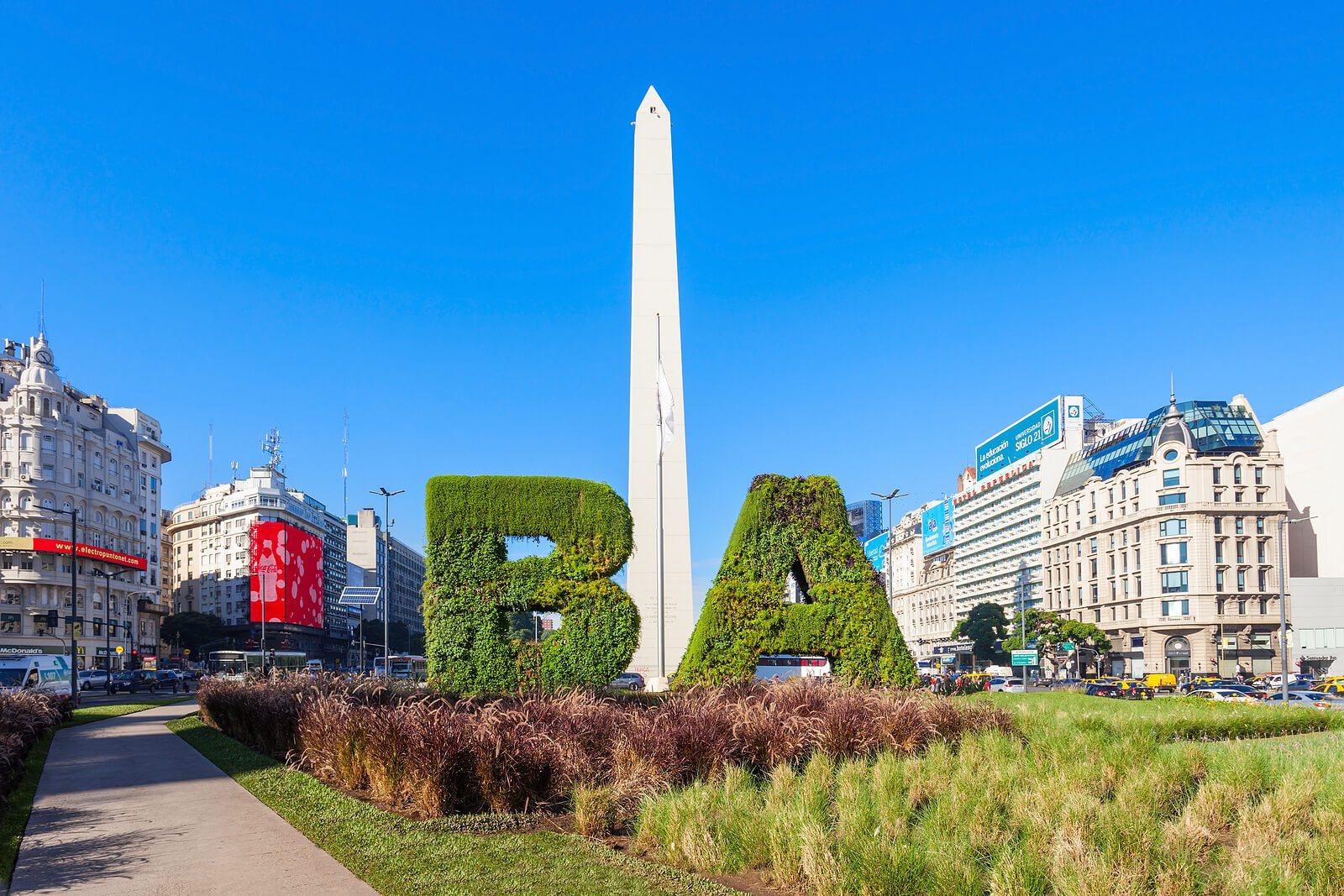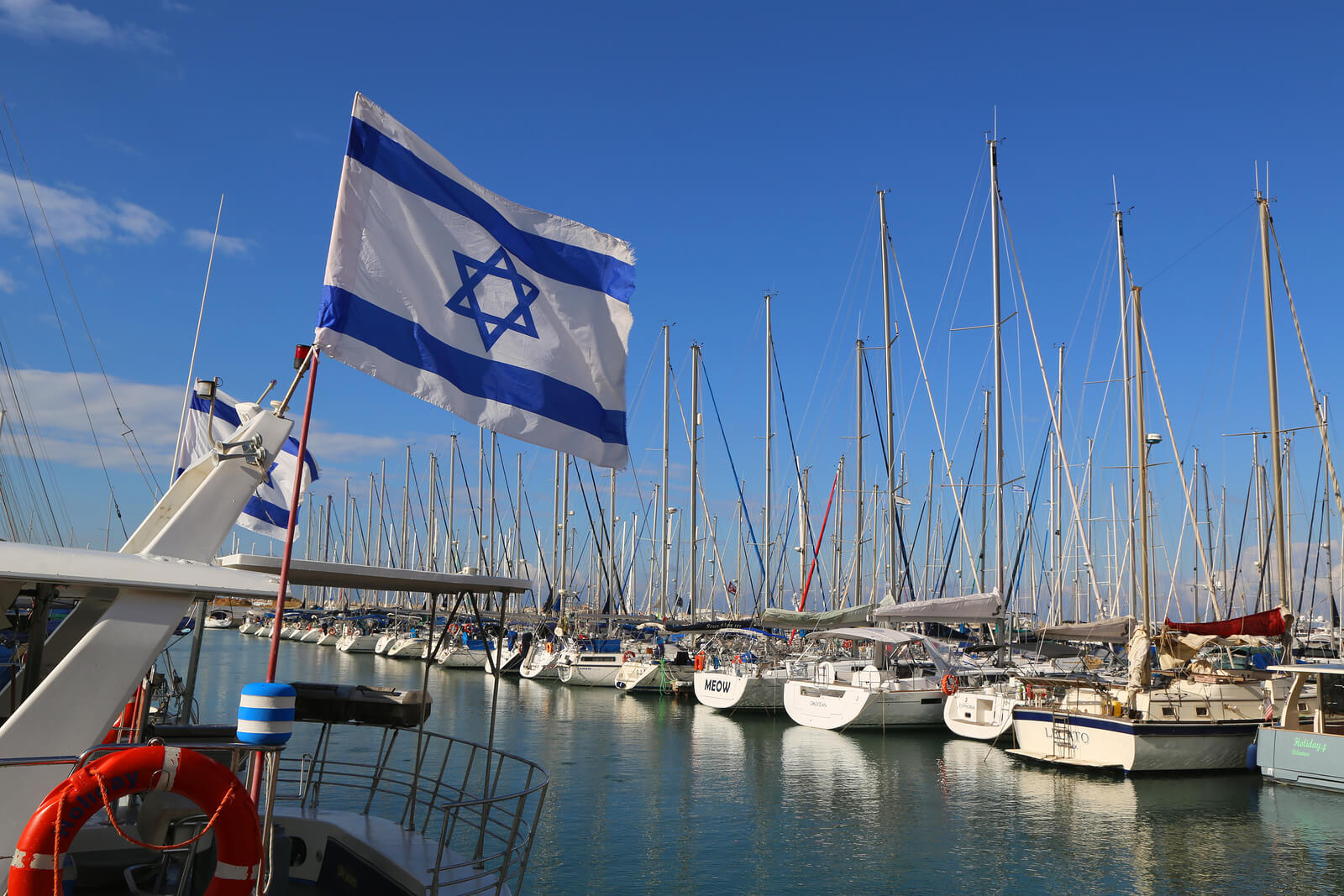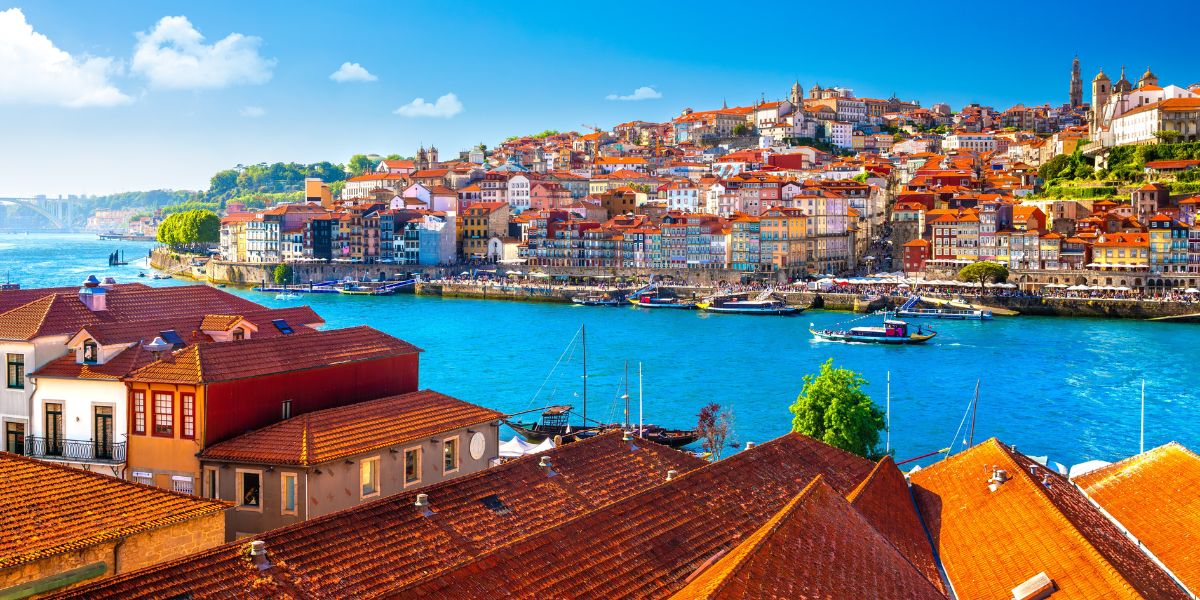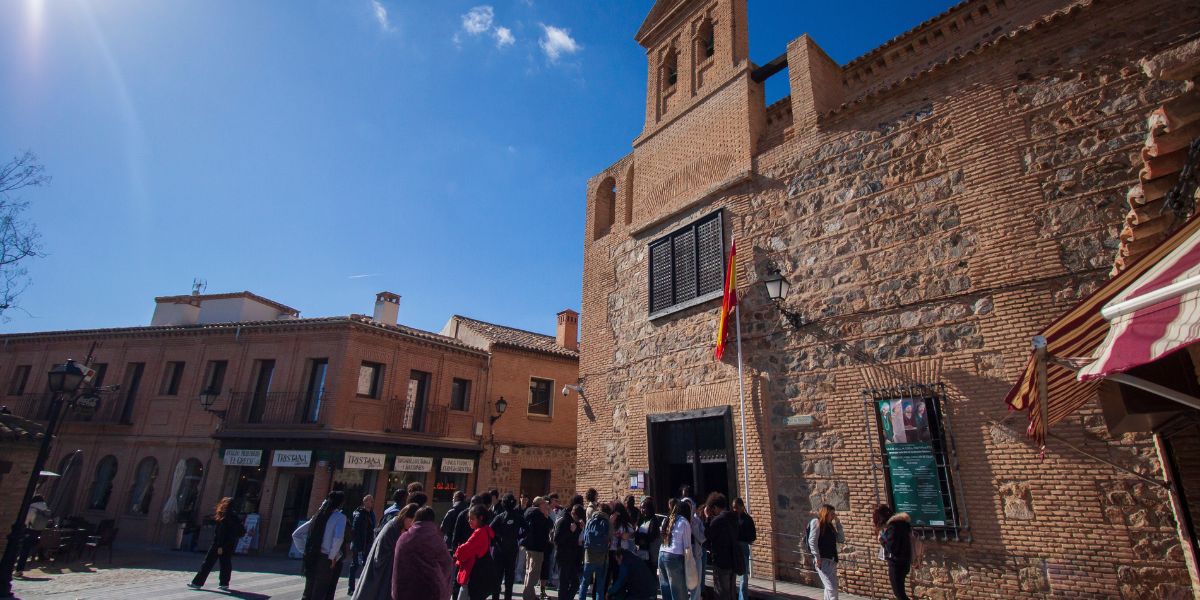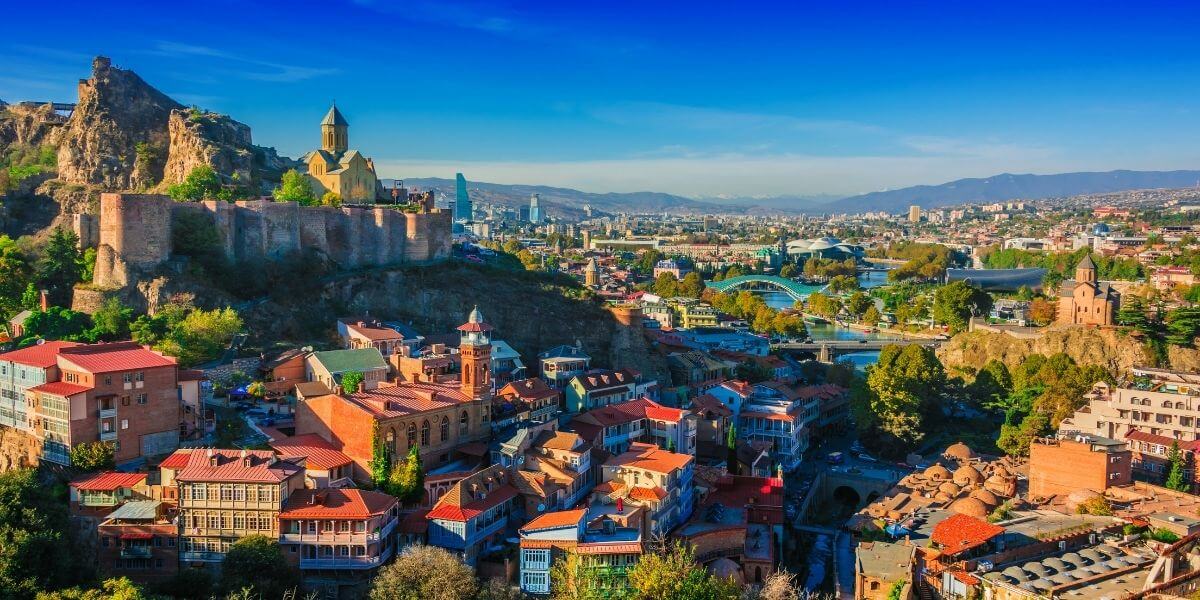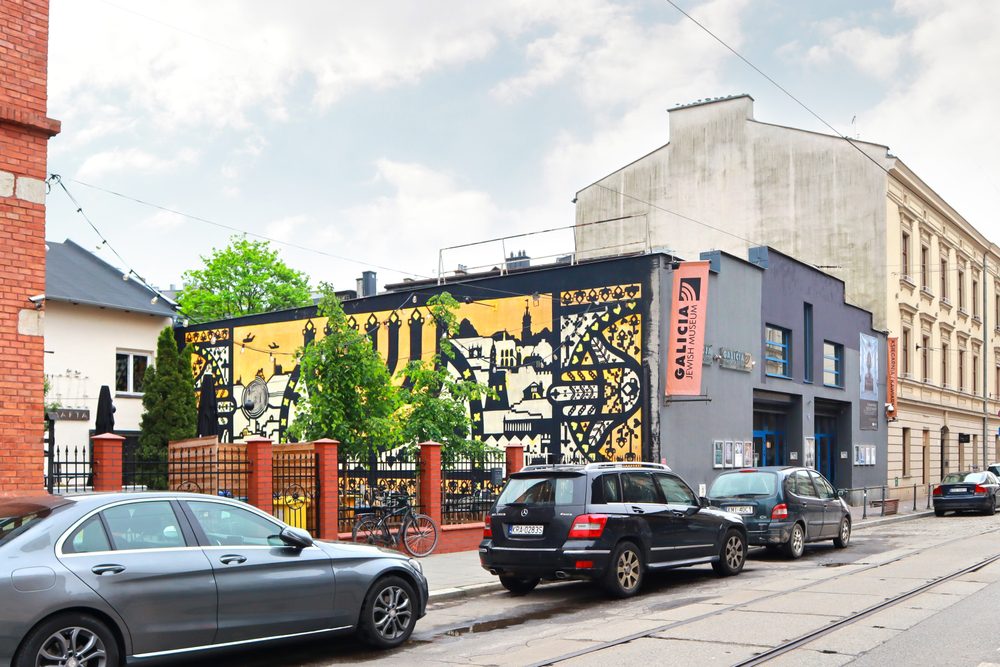Did you know that Thessaloniki was once known as the “Jerusalem of the Balkans”? With a Jewish population that once made up over half the city, this Greek metropolis has a rich Sephardic heritage just waiting to be explored! From hidden synagogues to poignant memorials, we’re about to embark on a journey through time and culture. Get ready to discover the top 10 Jewish heritage sites in Thessaloniki that you absolutely can’t miss. Trust me, by the end of this tour, you’ll see this vibrant city in a whole new light!
Check out our Jewish heritage tours in Greece.
-
Monastiriotes Synagogue: A Survivor’s Tale
Throughout its history, this unique Thessaloniki Jewish site functioned as a synagogue, ghetto, and Red Cross warehouse! The Montasir synagogue was built by Jews from Monastir- current-day Bitola, Macedonia- between 1925 and 1927 who had come to Thessaloniki after the Balkan Wars and World War I.
Out of Salonika’s 45 prewar synagogues, it was the only one not destroyed by the Nazis during World War II, thanks to serving as a warehouse for the Red Cross warehouse.
The building consists of two stories with a two-column arcade decorated with Stars of David that leads to the synagogue’s main entrance.
Inside you will find impressive high ceilings, a women’s galley, a beautiful Bimah and Aron Kodesh made of white marble and built in the neo-classical style, decorative terrazzo floor tiles, original wall paintings, and intricate white stucco reliefs with floral motifs and Stars of David.
Today, the Monastir Synagogue is the central synagogue of the Salonika Jewish Community and an official historical site. Make your trip to this incredible synagogue a little more meaningful by visiting during the High Holidays or going for a Friday night or Shabbat morning service to connect to local community members and experience Thessaloniki’s Jewish culture and customs!
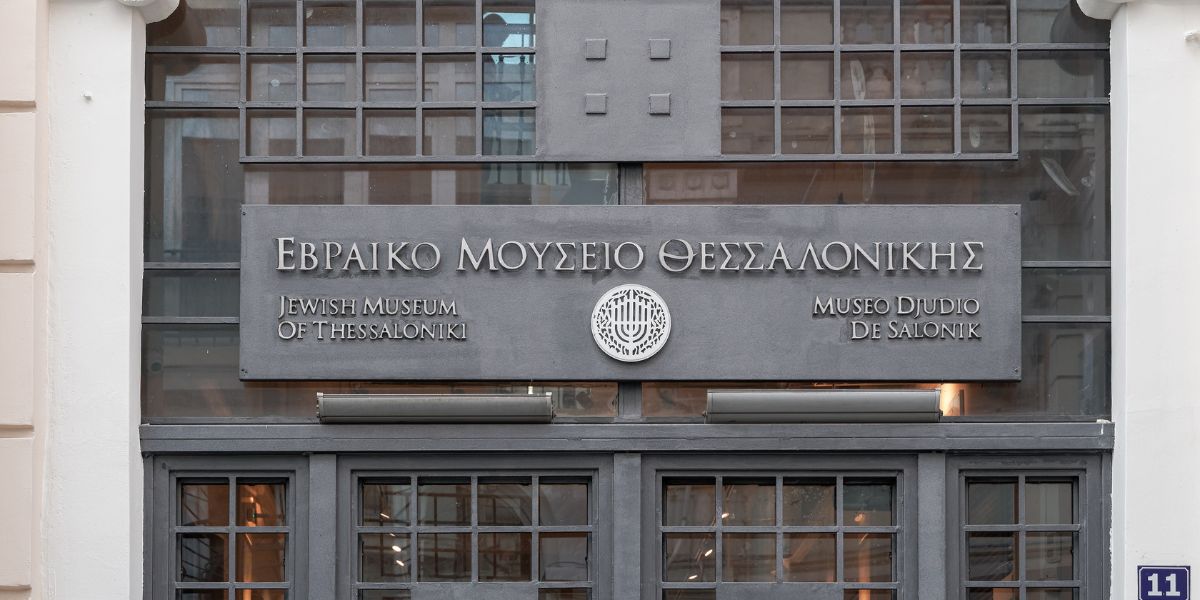
-
Jewish Museum of Thessaloniki: A Window to the Past
There’s no better way to dedicate a day during your Thessaloniki Jewish heritage travels than exploring the Jewish Museum of Thessaloniki.
The main mission of the Museum is to collect and preserve documents and artifacts from the Jewish community that survived the Holocaust to commemorate and remember its victims, whose community had previously flourished in the city of Thessaloniki for over 2,000 years.
While only established in 2001, this museum is a treasure trove of Jewish history in Thessaloniki and Greece, with vast collections of tombstones from the destroyed Jewish Cemetery, religious objects, old Hebrew language books, family memorabilia, Jewish marriage contracts, public and private documents related to World War II, traditional Greek-Jewish costumes, fabrics, tablecloths, and a digital collection of business documents from Jewish companies in Thessaloniki.
You can also find the only existing collection of surviving prewar family and school photographs in Greece.
Visitors to the Jewish Museum of Thessaloniki will truly gain significant insight into how the Jews of this ancient city lived and preserved their identity, traditions, and customs throughout the centuries.
Research programs on the local Jewish history and culture are being conducted in collaboration with Aristotle University and independent scholars. Last, the Museum organizes seminars about Local History, which are attended by high school teachers, and specific tours for school classes.
-
Holocaust Memorial: Remembering the Lost Community
The Menorah in Flames monument was built to memorialize the deportation of 54,000 of Salonika’s Jews during the Holocaust in 1943.
The sculpture, created by Nandor Glid, sits in Eleftherias Square where 9,000 of the city’s Jewish men were rounded up and conscripted into forced labor by the German occupation in 1942. The bronze menorah (a candelabrum) is made out of human bodies and flames. There are two plaques on the monument’s marble gray base; one in Greek and English, and one in Greek, Hebrew, and English.
Since ancient times, the menorah has served as a symbol of the Jewish people. Here, it can be interpreted as representing the ancient community that clung to their faith and traditions for thousands of years and continues to do so to this day despite being almost completely extinguished during the Holocaust.
-
Villa Allatini: From Jewish Mansion to Cultural Landmark
This stunning oasis on the easternmost border of Thessaloniki was created by Italian architect Vitaliano Pozelli in 1888 for the Allatini family, renowned for their successful businesses and activities within the community.
While it was built to be the Allatini’s summer home, this luxurious villa was utilized for several very different purposes throughout the years:
- Between 1909 and 1912 it was used as the prison residence of Sultan Abdul Hamid II, who was overturned by the Young Turks.
- In 1926 it hosted the newly founded University of Thessaloniki
- During World War II, the villa served as a hospital.
- In 1979, the Villa Allatini became the headquarters of the Prefecture of Thessaloniki.
Today, it serves as the Cultural Centre of MIET under the auspices of the National Bank Cultural Centre of Northern Greece.
If you’re looking for a relaxing way to spend a day in Thessaloniki with a splash of Jewish history, look no further than Allatini Villa! The opulent Renaissance-style building is made of brick consisting of three floors. Take your time admiring the beautiful interiors, stone paths, and manicured lawns.
If you prefer an organized tour, some Thessaloniki Jewish tours feature Villa Allatini as a stop in the itinerary. Going on a tour with a knowledgeable local guide will give you access to information, insight, and anecdotes you probably won’t find on a Wikipedia page!
-
Yad Lezikaron Synagogue: A Place of Remembrance
Dedicated to the memory of the victims of the Holocaust, the Yad Lezikaron Synagogue is a must-see Thessaloniki Jewish site due to its unique reconstruction with the ruins of synagogues that were destroyed during the war.
It was built in 1984 on the site of the small Bourla synagogue (Caal de la Plaza), and it has unique features, such as an arch from the former Kal Sarfati, the French synagogue, and a bimah procured from the Baron Hirsch Synagogue.
The Yad Lezikaron Synagogue is situated in an 8-story commercial building near the Modiano Market. Its only kosher butcher shop is owned by a religious Turkish immigrant. The top floor has a kosher kitchen and regularly hosts Jewish cultural events and widely-anticipated Friday night dinners.
For those wishing to explore this inspiring Jewish heritage site, you will need to make an appointment in advance through the Jewish Museum of Thessaloniki website. Visiting hours are Monday through Friday and Sunday from 9 a.m. to 1 p.m., so be sure to plan your day accordingly!
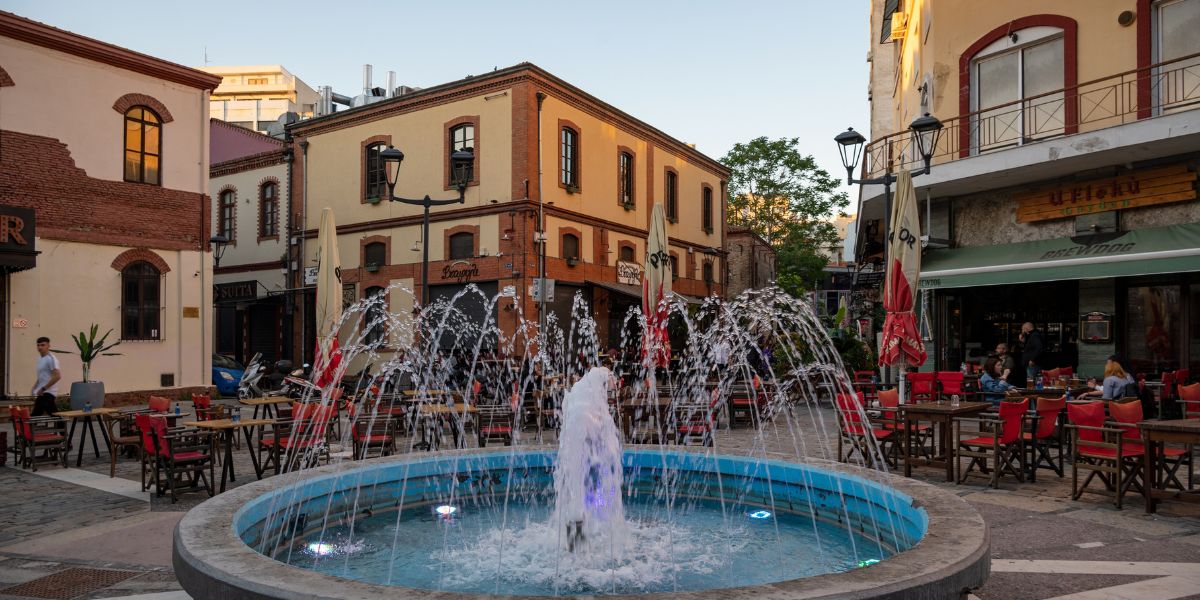
-
Former Jewish Quarter (Ladadika): Echoes of a Vibrant Pas
There’s no better way to learn about Thessaloniki’s Jewish heritage than by exploring the Jewish quarter, the social, economic, and spiritual center of Jewish communities around the world. We recommend you embark on a walking tour of Ladadika with a local guide who will navigate you through the quarter’s cobbled streets, pointing out significant sites, little-known facts, and the best local gems!
The district is characterized by well-preserved 19th-century buildings showcasing Ottoman, neo-classical, and eclectic architecture, which is now recognized by the Ministry of Culture as a heritage site.
Those looking for Jewish heritage sites in the area will be pleased to find that the Jewish Museum of Thessaloniki is located just a stone’s throw away! Here, you can learn about the history of the Ladadika Jewish Quarter, the Jews who inhabited it for centuries, and their contribution to Thessaloniki’s melting pot of cultures.
Today, the old Jewish quarter’s charming cobbled streets and unique architecture remain, while the traditional stores and warehouses have been converted into bars restaurants, and nightclubs. It’s a great place to visit for a short relaxed walking tour or a night out on the town!
-
The Old Railway Station: Deportation Point
The seemingly ordinary railway station was once witness to the tragedy of the deportation of Thessaloniki’s Jews and the Jews of northern Greece to Poland in 1943 during the Holocaust. It was here at the Old Railway Station, where Jews were herded into livestock carriages and sent off to the extermination camps at Auschwitz-Birkenau and Bergen-Belsen. By the end of the war, over 90% of Thessaloniki’s Jews had perished.
A plaque with commemorative text in Greek and English is affixed to the exterior wall of the train station and informational signs about the history of the train station and deportations can be viewed in front of the station. Four unused box cars sit on a track behind the station to represent the cars used to transport Jews from Thessaloniki to Poland.
This Thessaloniki Jewish site is a great stop on your Jewish heritage tour, as it’s close to several places on this list, including the new Jewish cemetery, Villa Allatini, and the Yad Lezikaron synagogue.
-
Baron Hirsch Hospital: A Legacy of Compassion
Baron Hirsch Hospital stands as a testament to the Jewish community’s significant contribution to healthcare in Thessaloniki. Established through the philanthropic efforts of Baron Maurice de Hirsch, a prominent Jewish businessman and philanthropist, the hospital provided much-needed medical services to the city’s growing Jewish population. During times of unrest, including World War II, the hospital served as a critical refuge for many, offering care amidst the chaos. Though the hospital no longer operates in its original form, its legacy endures through commemorative efforts, preserving the memory of its role in Thessaloniki’s rich Jewish history.
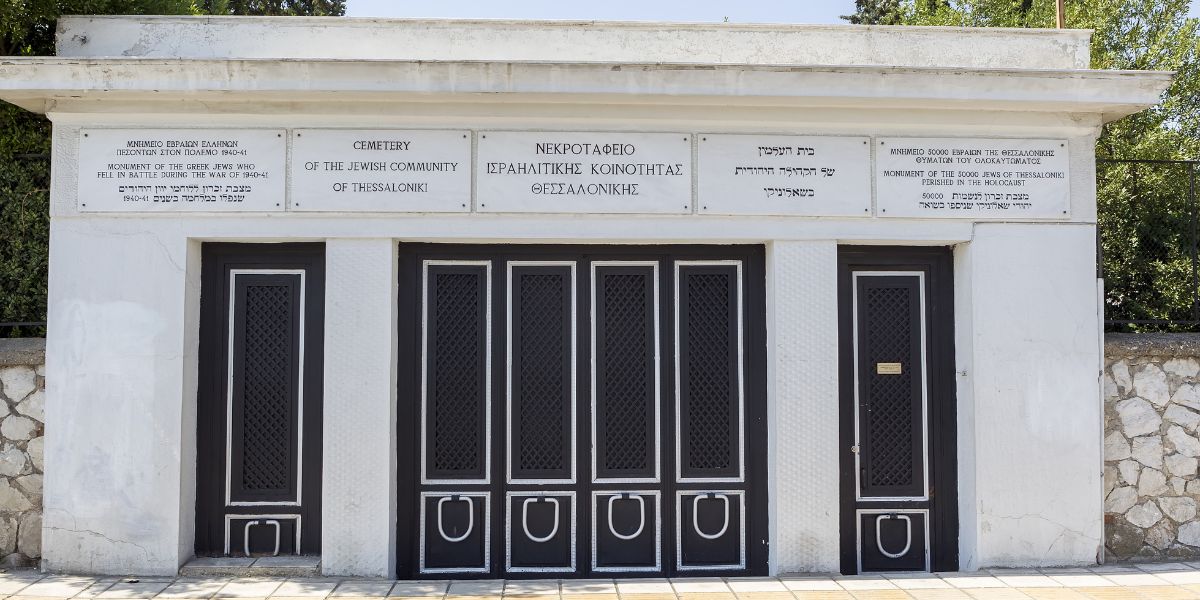
-
Jewish Cemetery of Thessaloniki: A Lost Necropolis
With nearly 500,000 graves, the Jewish cemetery of Thessaloniki was one of the largest Jewish cemeteries in Europe. It was founded by Sephardic Jews who fled Spanish persecution in the 15th century and found refuge and a home in the port city of Thessaloniki.
The city was occupied by the German forces in April 1941 and destruction of the cemetery was completed in 1943 by the Thessaloniki municipality just a few weeks before nearly 56,000 of the city’s Jews were deported to extermination camps in Poland.
Today, tombstones stolen from the Jewish cemetery can be found across the city’s infrastructure, including roads, buildings, sidewalks, churches, and even public baths. Those that are found are usually returned to the new Jewish cemetery, which was built in 1952. There are around 1,000 tombstones, including tombstones and some remains that were carried over from the old Jewish cemetery.
-
Aristotle University Campus: Built on History
Established in 1926, the Aristotle University campus was located right next to the Jewish cemetery. In 1937, the University pressured the community to allow the expansion of their grounds. The Jewish community agreed to relinquish 30,000 square meters in exchange for having the remainder of the cemetery preserved.
Unfortunately, this agreement did not hold up for very long, since in 1942, when the German occupation arrived, the Thessaloniki municipality was given the green light to destroy the entire Jewish cemetery and annex it to the university and use the tombstones for building materials.
To this day, Thessaloniki’s Jewish community has yet to receive compensation for the desecration of their loved ones and the confiscation of their land.
Those who wish to pay their respects to the victims during a Thessaloniki Jewish tour can visit the memorial that was erected in their honor on the Aristotle University grounds. The monument consists of a bronze sculpture of a seven-branched menorah, a Star of David, and an arrangement of marble plaques from the desecrated tombstones.
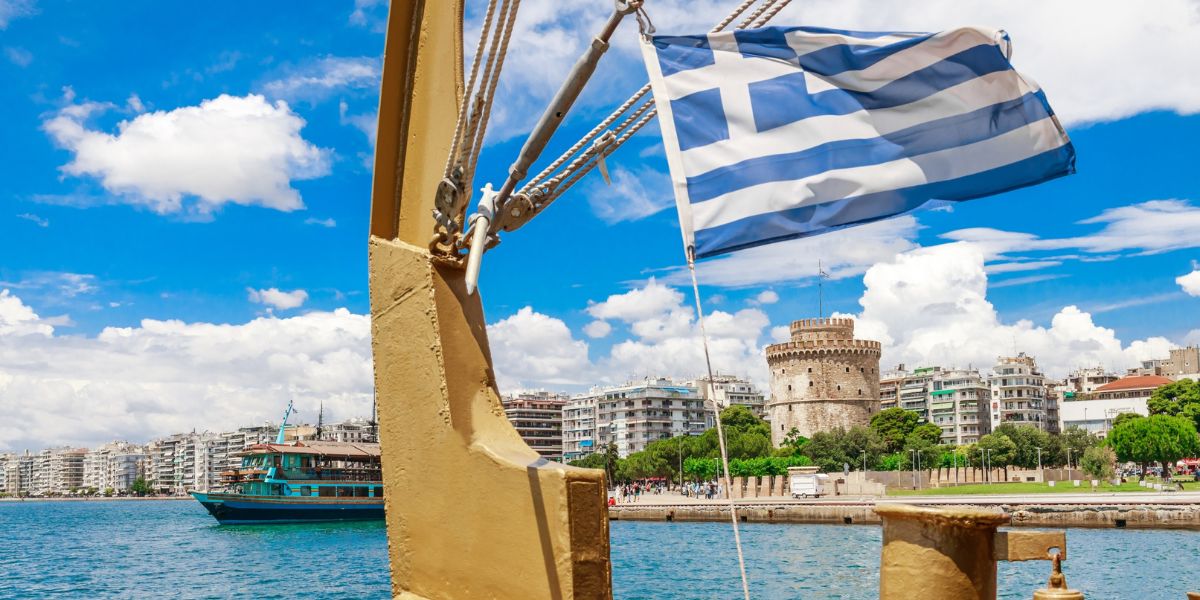
Thessaloniki Jewish Heritage Travel – Your Gateway to Greece’s Jewish History
Families looking for their next Jewish heritage trip to Greece should look no further than Thessaloniki! The ancient Greek city offers visitors centuries-old Sephardic structures, beautiful architecture, engaging museums, and moving Holocaust memorials, many of which are within walking distance, making it a great destination for all ages. Kosher observant tourists will also be happy to know that Thessaloniki has a kosher hotel, a Chabad House, and active synagogues.
In addition to the abundance of historical sites, beautiful architecture, and pristine beaches, the port city is a great base for accessing other parts of Greece, such as nearby islands with incredible natural landscapes, Mount Olympus, and Meteora to name a few!
Still not sure about Greece? Here are 10 reasons you must visit Greece.
If you want to travel to Thessaloniki without the hassle of planning an itinerary, Gil Travel – a Jewish travel agency – offers luxurious kosher Jewish heritage tours in Greece that can be personalized to your unique preferences, abilities, and travel goals. With an expert tour guide to navigate you through the city’s ancient Jewish heritage and connect you with the local community and culture, you will be sure to come home for memories that will last you and your family a lifetime!
